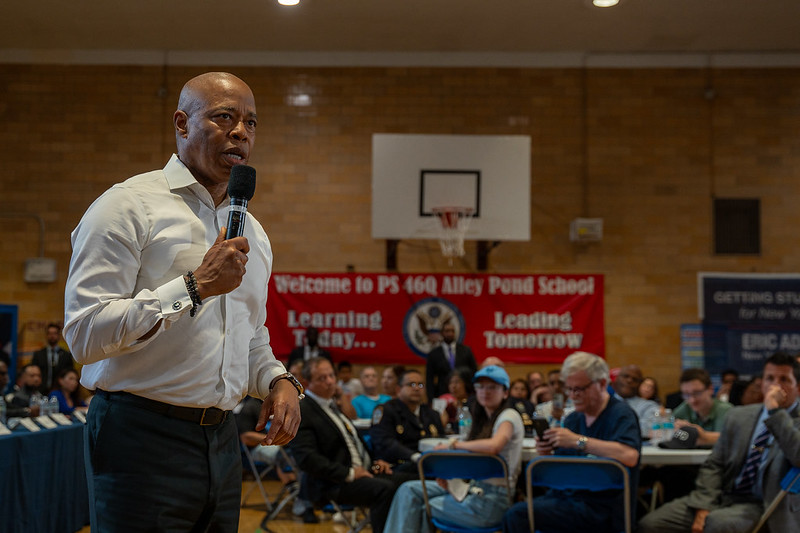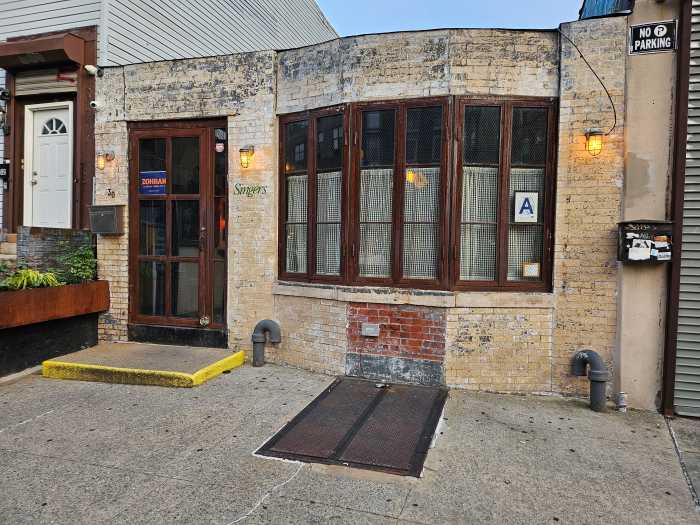In this Gay Pride Month, there is much to celebrate.
For starters, the very presence of former Deputy Inspector Seymour Pine — the police commander who led the infamous raid on the Stonewall Inn that sparked the gay-rights movement — at a panel on the event this month shows how greatly times have changed.
Thirty-five years ago, gay bars were regularly targeted by police, their patrons treated roughly and humiliated during arrests. Although these bars were often run by organized crime, this was probably at least partly due to the marginalization and de facto criminalization of gay culture by authorities.
The panel was organized by David Carter, author of a new definitive account of the Stonewall Rebellion. That Pine could come forward as he did and admit that police brutalized gays and exploited them to pad arrest numbers was, in the words of Carter, “courageous.” And it shows how society has changed to where gays at least in New York, no longer need live in fear of harassment.
Gains by gays and lesbians in terms of social acceptance have come gradually in the past decades. However, the movement for legal rights has recently been snowballing fast and furiously.
A year and a half ago, New York State passed SONDA, the Sexual Orientation Non-Discriminating Act, granting statewide civil rights to gays and lesbians.
Last June, the Supreme Court struck down the Texas anti-sodomy laws, ruling them un-Constitutional, a ruling that applied to all the other states. That ruling seemed to open the floodgates to the possibility of gay marriage.
Indeed, in November, a Massachusetts court ruled the state must allow gays and lesbians to wed, and in May the ruling took effect. Since then, thousands of same-sex couples have tied the knot there. Canada’s three largest provinces, Quebec, Ontario and British Columbia, also legalized gay marriage.
In February and March, gays started getting married on their own in San Francisco, then in Upstate New York, as the movement caught fire. However, in each case, the states challenged these marriages’ legality, with the threat of legal action against the mayors who allowed them if they refused to stop.
In New York, Mayor Bloomberg has refused to state his personal view on gay marriage. Attorney General Eliot Spitzer, while saying he supports gay marriage, has stated he feels New York State law does not permit it — though he says out-of-state gay and lesbian marriages should be recognized here. In our state, the courts will likely decide the issue.
In a conservative backlash, the marriage movement was countered by threat of a Constitutional ban by President Bush. A vote in the Senate is expected next month.
Also in New York City, the City Council passed the landmark Equal Benefits Bill, under which private companies contracting with the city must provide equal benefits to gay employees’ partners. The mayor vetoed the bill; it remains to be seen whether the Council will override the veto.
That Pine can address a group of gays and then be mobbed for autographs shows how remarkably things have changed. And yet, the struggle continues — for gay marriage. But clearly the momentum is there.
With legal and protest gay marriages occurring all over the country, many Americans who were resistant to the idea only a year or two ago are realizing that the sky won’t fall if government allows two adults who love each other to marry.
We see the day, probably not too far in the future, that there will be a panel looking back at a time when gay marriage wasn’t allowed.
Make Your Voice Heard
Email your
Letter to the Editor
Please include your phone number
for confirmation purposes only.
Read More: https://www.amny.com/news/el-teddy-demolition-to-resume-in-august/
































